New Order Found Please Review the order ASAP for the client to
proceed

Unread Message Found Please check the message ASAP and reply to client


Table of Contents
I. Introduction.
II. The Evolution of Psychological Essays.
III. Types of Essays in Psychology.
IV. Crafting a Compelling Introduction of Essays in Psychology.
V. Developing a Strong Thesis Statement of Essays in Psychology.
VI. Structuring the Body of the Psychology Essays.
VII. Utilizing Case Studies in Psychological Essays.
VIII. The Art of Psychological Analysis.
IX. Integrating Empirical Evidence in Psychological Essays.
X. Writing Style in Psychological Essays.
XI. Addressing Counterarguments on essays in psychology
XII. Ethical Considerations in Psychological Essay Writing
XIII. The Role of Personal Reflection
XIV. The Psychology of Persuasion in Essays
XV. Conclusion
XVI. References
I. Introduction
A. Brief Overview of Psychology Essays
Essays in psychology encompass a diverse array of written works that delve into the multifaceted realm of human behavior and cognition. Ranging from research papers that employ empirical methodologies to literature reviews synthesizing existing knowledge, these essays explore topics such as the effects of therapeutic interventions, the interplay of genetics and behavior, and the nuances of psychological theories.
Critical analysis essays challenge established ideas, requiring authors to present compelling arguments and evidence. Case studies offer in-depth examinations of specific individuals or groups, offering insights into complex psychological phenomena within real-world contexts. Theoretical essays delve into the development and application of psychological frameworks, while application essays bridge theory and practice in various fields.
Ethical dilemma essays grapple with moral quandaries in research or practice, fostering reflection on ethical considerations. Regardless of the type, effective psychology essays demand clarity, coherence, and a well-organized structure to convey ideas with precision and depth.
B. Importance of Essays in Understanding Human Behavior
Essays in psychology play a pivotal role in deepening our comprehension of human behavior. These written explorations provide a platform for researchers and scholars to dissect, analyze, and interpret the complexities of the human mind.
Through empirical research papers, literature reviews, critical analyses, and case studies, essays contribute to the ongoing dialogue about the factors shaping human behavior, ranging from the influence of genetics to the impact of therapeutic interventions. Theoretical essays elucidate the underpinnings of psychological frameworks, while application essays bridge the gap between theory and real-world scenarios.
By addressing ethical dilemmas, these essays also foster a heightened awareness of the moral considerations inherent in psychological research and practice. In essence, the importance of psychology essays lies in their ability to unravel the intricate threads of human behavior, offering valuable insights that contribute to the collective understanding of the human psyche.
II. The Evolution of Psychological Essays

A. Historical Context of Early Psychological Writings
The evolution of essays in psychology is deeply rooted in the historical context of early psychological writings. In the late 19th and early 20th centuries, the field of psychology underwent a transformative period marked by the emergence of influential figures such as Wilhelm Wundt, William James, and Sigmund Freud.
During this time, scholars began to formalize the study of the mind and behavior, leading to the publication of foundational works that laid the groundwork for the discipline. Wundt's introspection experiments, James's exploration of pragmatism, and Freud's psychoanalytic theories all sparked intellectual discourse and inspired a wealth of written reflections. These early psychological writings, often in essay form, not only documented the pioneers' groundbreaking ideas but also set the stage for the diverse array of essay genres in contemporary psychology.
Today's essays in psychology continue to build on this historical foundation, exploring an ever-expanding range of topics and methodologies while maintaining a commitment to understanding the complexities of the human psyche.
B. Pioneering Figures in Psychology Essay Writing
The evolution of essays in psychology is intricately tied to the contributions of pioneering figures who shaped the discipline through their insightful writings. Visionaries like William James, often regarded as the father of American psychology, and Sigmund Freud, the founder of psychoanalysis, played instrumental roles in formulating and disseminating their groundbreaking ideas through essays.
James's exploration of pragmatism and functionalism, evident in works like "The Principles of Psychology," laid the groundwork for empirical research and applied psychology. Meanwhile, Freud's seminal essays, including "The Interpretation of Dreams," revolutionized our understanding of the unconscious mind.
These early essayists not only articulated foundational theories but also set a precedent for the integration of philosophy, biology, and clinical observation in the study of psychology. Their enduring influence underscores the importance of writing Essays in psychology as a vehicle for shaping and advancing psychological thought throughout history.
III. Types of Essays in Psychology
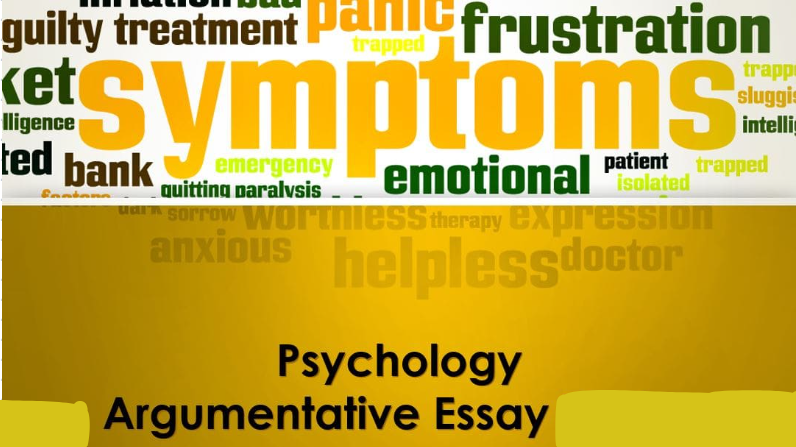
A. Analytical Essays in Psychology
Analytical essays in psychology are a distinctive genre within the field, demanding a keen examination and interpretation of psychological phenomena. These essays require authors to dissect complex theories, research findings, or concepts, delving into the underlying components and scrutinizing their significance.
Analytical essays go beyond summarization, compelling writers to critically evaluate the strengths, weaknesses, and implications of the subject matter. Whether assessing the effectiveness of therapeutic interventions, scrutinizing the methodology of a research study, or examining the nuances of a psychological theory, these essays encourage a meticulous and thoughtful analysis.
The analytical approach prompts authors to engage in a deeper exploration, fostering a nuanced understanding of psychological principles and contributing to the ongoing discourse within the discipline.
B. Research-Based Essays in Psychological Studies
Research-based essays in psychology studies form a cornerstone of scholarly exploration within the discipline. These essays involve the systematic investigation of phenomena through empirical research methods, such as experiments, surveys, or observational studies.
Authors meticulously design and conduct studies, gather data, and present their findings to contribute new insights to the existing body of psychological knowledge. The structure of these essays typically includes a detailed introduction outlining the research question or hypothesis, a comprehensive review of relevant literature, a transparent description of the research methodology, a presentation of results, and a thoughtful discussion of the implications.
Research-based essays play a vital role in advancing the field by expanding our understanding of human behavior, cognition, and emotions through rigorous scientific inquiry.
C. Reflective Essays on Personal Growth and Experiences
Reflective essays in psychology on personal growth and experiences in psychology provide a unique avenue for individuals to explore and articulate their own psychological journey. These essays involve introspection and thoughtful examination of personal experiences, challenges, and growth, often within the context of psychological theories or concepts.
Authors may reflect on how certain life events or relationships have influenced their perspectives, behaviors, and emotional well-being. These essays encourage a deep level of self-awareness and an exploration of the psychological processes underlying one's development.
By sharing personal narratives, individuals contribute to the broader understanding of the intersection between lived experiences and psychological principles, fostering empathy and connection within the field. Reflective essays in psychology serve as a medium for self-discovery and offer readers insights into the diverse ways individuals navigate their inner worlds.
IV. Crafting a Compelling Introduction of Essays in Psychology
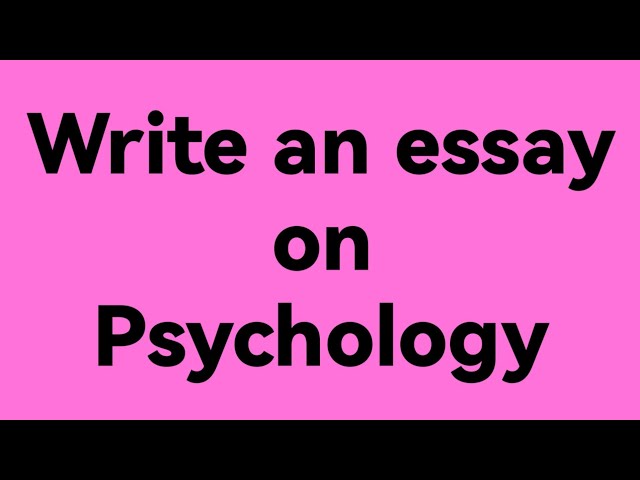
A. Importance of Hooking the Reader
Crafting a compelling introduction on essays in psychology is paramount, as it serves as the reader's initial point of engagement with the topic. The importance of hooking the reader lies in establishing a sense of intrigue and relevance, compelling them to delve deeper into the essay. An effective introduction not only outlines the scope and purpose of the essay but also captivates the reader's attention by posing thought-provoking questions, presenting intriguing facts, or offering a compelling anecdote.
By establishing a connection between the reader and the subject matter from the outset, a well-crafted introduction lays the foundation for a more meaningful and impactful exploration of psychological concepts or research. In essays in psychology, where the topics can be complex, the art of hooking the reader becomes a crucial skill in ensuring that the audience remains engaged and motivated to explore the depths of the subject matter.
B. Elements of an Effective Opening Paragraph
Crafting a compelling introduction in psychology essays requires careful attention to key elements that draw readers into the text. An effective opening paragraph begins with a clear and concise thesis statement, outlining the essay's main purpose and the specific topic under consideration.
To capture the reader's attention, incorporating a hook, such as an intriguing question, a relevant anecdote, or a compelling statistic, can create immediate interest. Providing a brief context or background sets the stage for the discussion, while outlining the scope and importance of the topic helps the reader understand its relevance.
Finally, a well-structured introduction on essays in psychology concludes with a preview of the main points to be addressed, guiding the reader's expectations and establishing a roadmap for the essay. These elements collectively contribute to an engaging and informative introduction that encourages readers to delve further into the complexities of the psychological exploration ahead.
V. Developing a Strong Thesis Statement in Essays in Psychology
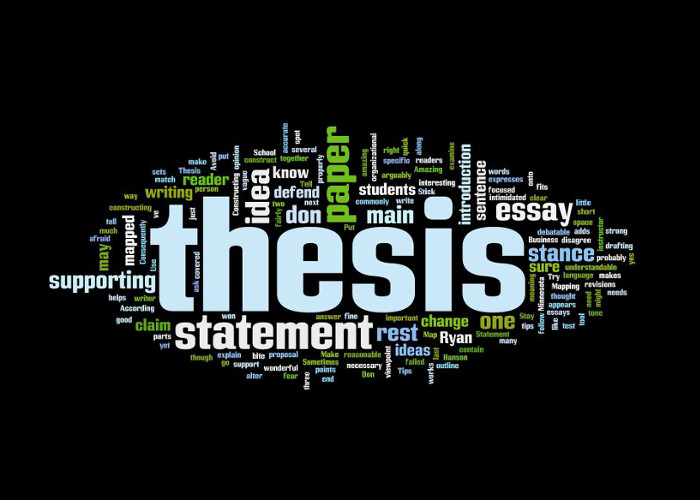
A. Defining the Purpose of the Essay
Developing a strong thesis statement is paramount in the essays in psychology, as it succinctly defines the purpose and central argument of the essay. The thesis statement serves as a concise roadmap, indicating to the reader the specific focus and stance the essay will take on a given psychological topic.
A robust thesis often articulates a clear perspective on the relationship between variables, the interpretation of empirical findings, or the evaluation of a psychological theory in essays in psychology. It provides a guide for the essay's development, ensuring coherence and clarity throughout the text.
Crafting a strong thesis statement requires precision and specificity, allowing the reader to grasp the essay's overarching message and setting the stage for a nuanced exploration of psychological concepts or research.
B. Examples of Well-Crafted Thesis Statements
Developing a strong thesis statement in essays in psychology involves crafting a clear and concise expression of the essay's main argument or perspective. For instance, a thesis statement might assert the impact of cognitive-behavioral therapy on reducing symptoms of anxiety, providing a specific focus for the essay.
Another example could be a thesis statement that evaluates the influence of genetic factors on personality traits, offering a framework for exploring the intersection of genetics and psychology. Well-crafted thesis statements in psychology essays are often specific, debatable, and indicative of the main point of the essay.
Whether addressing the effectiveness of a therapeutic intervention, examining the relationship between variables, or critiquing a psychological theory, a strong thesis statement guides the reader and sets the tone for the comprehensive exploration of the chosen topic within the essay.
VI. Structuring the Body of the Psychology Essays
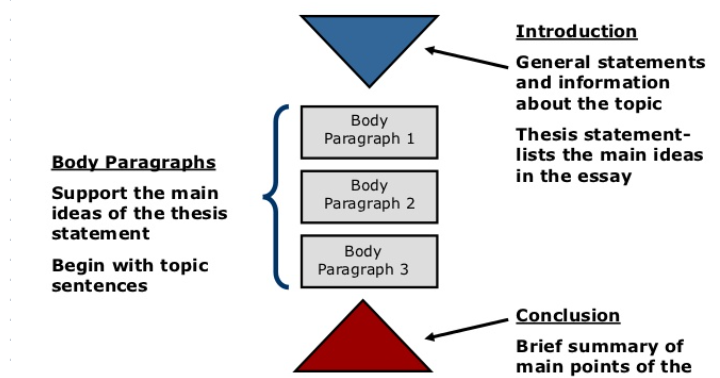
A. Organizing Thoughts and Ideas Logically
Structuring the body of essays in psychology involves the essential task of organizing thoughts and ideas logically to facilitate a coherent and impactful narrative. Each paragraph within the body should begin with a clear topic sentence that conveys a specific point or argument. The subsequent sentences then provide supporting evidence, examples, or analysis to bolster the main idea.
Maintaining a logical flow between paragraphs is crucial for the overall coherence of the essay. One effective approach is to organize the body by themes, theories, or the chronological progression of ideas, depending on the nature of the essay. This structure ensures that the reader can easily follow the development of the argument and understand the connections between different concepts. By systematically presenting information and insights, the structured body of psychology essays enhances clarity and enables readers to engage meaningfully with the essay's content.
B. Incorporating Psychological Theories and Concepts
Developing a strong thesis statement of essays in psychology often involves the thoughtful incorporation of psychological theories and concepts. A robust thesis statement not only conveys the main argument of the essay but also situates it within the broader landscape of psychological understanding.
For instance, a thesis might assert the influence of Erikson's psychosocial stages on identity formation during adolescence, providing a theoretical framework for the discussion. Alternatively, it could propose a thesis that evaluates the applicability of cognitive dissonance theory in explaining certain behaviors.
By integrating established psychological theories and concepts into the thesis statement, the essay establishes a clear connection to existing scholarship and positions the argument within the context of established psychological knowledge. This approach lends depth and credibility to the thesis, setting the stage for a comprehensive exploration of the chosen topic within the essay.
VII. Utilizing Case Studies in Psychological Essays

A. Extracting Insights from Real-Life Examples
Utilizing case studies into essays in psychology involves extracting valuable insights from real-life examples, offering a tangible and applicable dimension to theoretical concepts. These in-depth examinations of specific individuals or groups provide a rich source of data for understanding the complexities of human behavior within diverse contexts.
By incorporating case studies into essays, authors can illustrate the practical application of psychological theories and principles. Whether exploring the effectiveness of therapeutic interventions, examining the impact of environmental factors on development, or analyzing patterns of abnormal behavior, case studies bring theories to life and allow for a more nuanced understanding of psychological phenomena.
Additionally, they offer a bridge between theory and practice, showcasing how psychological concepts manifest in the complexity of real-world situations, enriching the depth and applicability of the essay's insights.
B. Ethical Considerations in Using Case Studies
Incorporating case studies into essays in psychology requires careful attention to ethical considerations surrounding the use of real-life examples. Respecting the privacy and confidentiality of individuals involved in case studies is paramount.
Authors must ensure that sensitive information is anonymized, protecting the identities of those being studied. Transparent disclosure of the purpose and potential impact of the case study is essential, and obtaining informed consent from participants, when possible, is a critical ethical practice.
Moreover, authors should weigh the potential benefits of the case study in contributing to psychological knowledge against the potential harm to participants. Addressing these ethical considerations not only upholds the integrity of the research but also fosters trust in the field of psychology, demonstrating a commitment to ethical conduct in the pursuit of knowledge.
VIII. The Art of Psychological Analysis
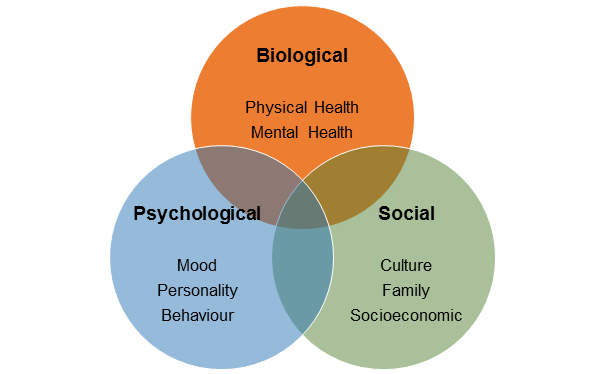
A. Analyzing Behavior and Mental Processes
The art of psychological analysis in essays in psychology involves a meticulous examination of behavior and mental processes to uncover underlying patterns, motivations, and implications. Authors engage in a systematic exploration of empirical evidence, theories, or case studies, applying critical thinking skills to interpret and evaluate the complexities of human psychology.
Whether analyzing the outcomes of research studies, dissecting the intricacies of cognitive processes, or interpreting the nuances of individual behavior, the goal is to provide insightful and meaningful interpretations. This analytical approach requires a deep understanding of psychological theories and concepts, as well as the ability to apply them in a discerning manner.
The art of psychological analysis contributes to the development of a nuanced understanding of human behavior, fostering intellectual exploration and expanding the knowledge base within the field of psychology.
B. Incorporating Scholarly Perspectives in Analysis
The art of psychological analysis in essays in psychology is elevated by the thoughtful incorporation of scholarly perspectives. Engaging with existing literature, theoretical frameworks, and empirical studies, authors bring depth and context to their analyses.
By weaving together insights from established scholars and researchers, the analysis becomes more robust and informed. This process involves critically evaluating and synthesizing diverse perspectives, allowing for a comprehensive understanding of the topic at hand.
Incorporating scholarly perspectives not only enriches the depth of the analysis but also demonstrates the author's ability to situate their work within the broader academic conversation. It fosters a sense of academic rigor and contributes to the ongoing development of psychological knowledge, making the essay a valuable addition to the scholarly discourse in the field.
IX. Integrating Empirical Evidence in Psychological Essays
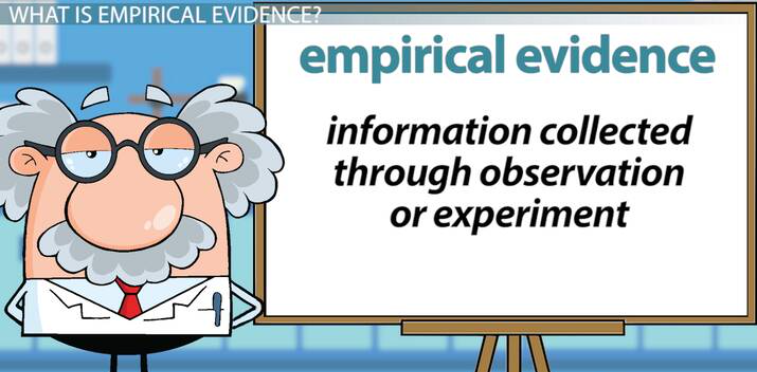
A. Importance of Citing Research Studies
Integrating empirical evidence into essays in psychology is a fundamental practice, and citing research studies holds paramount importance in establishing credibility and supporting arguments. Empirical evidence, derived from systematic and scientific research, provides a foundation for the claims and theories presented in psychological essays.
Citing relevant studies not only bolsters the author's assertions but also allows readers to trace the origins of the information, fostering transparency and accountability. By referencing specific research studies, authors demonstrate a connection to the broader academic conversation, showcase the currency of their knowledge, and contribute to the cumulative understanding of psychological phenomena.
This integration of empirical evidence not only substantiates claims but also encourages a culture of evidence-based reasoning and critical engagement within the field of psychology.
B. Tips for Evaluating and Using Empirical Data
Integrating empirical evidence into essays in psychology requires a thoughtful approach to evaluating and using the available data. Firstly, authors should critically assess the reliability and validity of the research studies they consider, ensuring that the methodology employed is robust and aligns with the essay's objectives. It is crucial to examine the sample size, research design, and statistical analyses to gauge the strength of the evidence.
Additionally, authors should consider the relevance of the empirical findings to their specific topic and clearly articulate how the data supports their arguments. Effectively integrating empirical evidence involves not only summarizing findings but also interpreting and synthesizing them to enhance the overall narrative. By adhering to these tips, authors can confidently incorporate high-quality empirical data, strengthening the rigor and persuasiveness of their psychological essays.
X. Writing Style in Psychological Essays
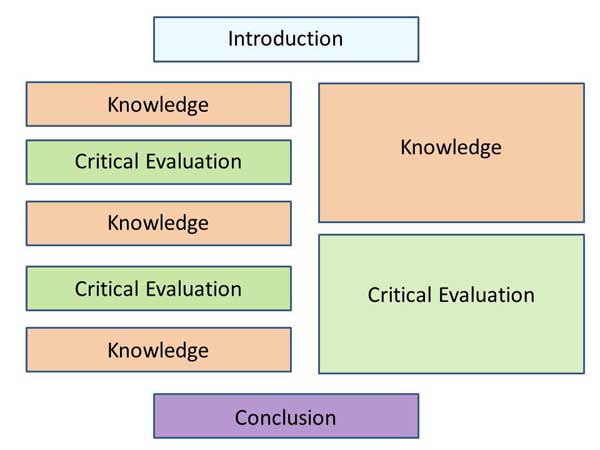
A. Clarity and Precision in Language
In essays in psychology, cultivating a writing style characterized by clarity and precision in language is paramount. Clear and precise expression is essential for effectively conveying complex psychological concepts and research findings to a diverse audience.
Authors must prioritize clarity in their prose to ensure that ideas are easily understood, avoiding ambiguity or confusion. Precision in language involves choosing words carefully to convey exact meanings, minimizing the risk of misinterpretation. This style not only enhances the readability of the essay but also demonstrates a mastery of the subject matter. By employing a writing style marked by clarity and precision, authors can engage readers more effectively, facilitating a deeper understanding of the intricate nuances within the realm of psychology.
B. Balancing Formality with Engagement
In the realm of essays in psychology, achieving a balance between formality and engagement in writing style is crucial. While maintaining a formal tone is essential for conveying professionalism and respect for the subject matter, injecting elements of engagement helps captivate the reader's interest. Striking this balance involves employing a clear and scholarly language without sacrificing accessibility.
Authors can achieve engagement through the use of illustrative examples, relatable anecdotes, or compelling case studies. This approach not only fosters a connection between the reader and the content but also ensures that the essay remains accessible to a broader audience. A skillful blend of formality and engagement enhances the overall impact of the essay, making complex psychological concepts more approachable and fostering a deeper connection between the author and the reader.
XI. Addressing Counterarguments on essays in psychology
A. Anticipating and Responding to Critiques

Addressing counterarguments in essays in psychology involves the skill of anticipating and responding to potential critiques of the presented ideas. An effective essay not only articulates its main arguments but also acknowledges and engages with alternative viewpoints or potential objections.
By anticipating counterarguments, authors demonstrate a thorough understanding of the complexities within the field of psychology and showcase a commitment to intellectual rigor. Responding thoughtfully to counterarguments involves presenting evidence, offering reasoned explanations, or highlighting nuances that may have been overlooked.
This process not only strengthens the overall persuasive quality of the essay but also contributes to a more comprehensive and well-rounded exploration of the chosen topic within the dynamic landscape of psychological discourse.
B. Strengthening the Essay through Counterargument
Addressing counterarguments in essays in psychology is a strategic approach that strengthens the overall quality of the essay. By anticipating and engaging with opposing viewpoints, authors demonstrate intellectual honesty and a commitment to a robust exploration of the topic.
Counterarguments serve not only to acknowledge the complexity of psychological issues but also to refine and clarify the author's stance. Effectively addressing counterarguments involves presenting compelling evidence, demonstrating a nuanced understanding of differing perspectives, and showcasing the ability to navigate and respond thoughtfully to opposing views.
In doing so, the essay becomes a more comprehensive and persuasive piece of scholarship, fostering a deeper appreciation for the complexity and diversity of opinions within the field of psychology.
XII. Ethical Considerations in Psychological Essay Writing

A. Maintaining Confidentiality and Privacy
When writing essays in psychology a vigilant commitment to maintaining confidentiality and privacy is demanded. Respecting the confidentiality of individuals discussed in case studies, research findings, or personal anecdotes is paramount to uphold ethical standards. Authors must take meticulous care to de-identify information, ensuring that the identities of individuals remain protected.
This commitment extends to safeguarding the privacy of participants in studies, reinforcing trust between researchers and subjects. By prioritizing ethical considerations related to confidentiality and privacy, psychological essay writers not only adhere to professional standards but also contribute to the ethical foundation of the discipline, fostering a culture of integrity and respect within the field of psychology.
B. Avoiding Bias and Stereotypes in Writing
Ethical considerations when writing essays in psychology include a conscientious effort to avoid bias and stereotypes. Writers must be diligent in presenting information objectively, steering clear of prejudiced language or assumptions that may perpetuate stereotypes or reinforce existing biases.
This commitment to impartiality is crucial in upholding the integrity of psychological research and scholarship. By promoting a fair and unbiased portrayal of individuals and groups, authors contribute to a more inclusive and respectful representation of diverse perspectives within the field of psychology. Ethical essay writing in psychology thus not only aligns with professional standards but also plays a pivotal role in advancing the discipline with sensitivity and equity.
XIII. The Role of Personal Reflection

A. Balancing Objectivity with Personal Insights
The role of personal reflection in essays in psychology involves a delicate balance between objectivity and personal insights. While maintaining a rigorous and evidence-based approach, authors can enhance the depth of their essays by incorporating thoughtful reflections on personal experiences, observations, or emotional responses.
This balance allows for a nuanced exploration of psychological concepts and theories, connecting the academic discourse with lived experiences. Personal reflections can provide context, authenticity, and a human dimension to the essay, fostering a deeper engagement with the subject matter.
However, it is crucial to exercise caution and transparency, acknowledging the subjective nature of personal reflections and ensuring they do not compromise the overall objectivity of the essay. When done judiciously, the integration of personal reflection enriches the narrative and contributes to a more holistic understanding of the complexities within the field of psychology.
B. Demonstrating Self-Awareness in Psychological Essays
The role of personal reflection in essays in psychology extends beyond enriching the narrative; it serves as a means of demonstrating self-awareness. Authors who incorporate personal reflections into their essays showcase an understanding of their own perspectives, biases, and emotional responses, contributing to a more transparent and authentic exploration of psychological topics.
This self-awareness allows writers to critically examine their own assumptions and consider the potential impact of personal experiences on their interpretations. By acknowledging the subjective nature of personal reflections, authors underscore the complexity of human psychology and exemplify a commitment to intellectual honesty. Striking the right balance, personal reflection becomes a valuable tool for fostering connection, empathy, and a deeper appreciation for the intricate interplay between academic knowledge and personal understanding in the realm of psychology.
XIV. The Psychology of Persuasion in Essays

A. Techniques for Persuasive Writing
Essays in psychology involves employing various techniques to engage and convince the reader of the author's perspective. One effective technique is the use of compelling evidence, including research studies, statistics, or expert opinions, to bolster arguments. Establishing credibility by citing reputable sources enhances the persuasive impact.
Additionally, the artful use of language, employing rhetorical devices and persuasive appeals such as ethos, pathos, and logos, can evoke emotional responses and strengthen the overall persuasive effect. Structuring the essay with a clear thesis, logical progression, and strategic placement of key points contributes to a compelling and persuasive narrative.
Ultimately, understanding the psychological nuances of persuasion allows essay writers to not only present information but also to influence and shape the reader's perspective in a thoughtful and impactful manner.
B. Influencing Readers through Well-Constructed Arguments
Essays in psychology revolves around the art of influencing readers through well-constructed arguments. Persuasive writing requires the strategic presentation of ideas, supported by evidence and logical reasoning, to engage and sway the reader towards the author's viewpoint.
Crafting a compelling thesis statement and structuring the essays in psychology with clarity enhances the impact of the argument. Employing persuasive language, emphasizing the relevance of the topic, and addressing potential counterarguments contribute to the overall persuasive effect. By tapping into cognitive and emotional responses, authors can guide readers towards a specific interpretation or conclusion.
Understanding the psychological dynamics of persuasion allows essay writers to not only convey information effectively but also to shape and influence the reader's perception in a manner that is both compelling and thought-provoking.
XV. Conclusion
A. Recap of Key Elements in Writing Essays in Psychology
In conclusion, mastering the art of writing essays in psychology involves a careful orchestration of key elements. A well-crafted introduction, featuring a clear thesis and engaging content, sets the tone for the reader. The body of the essay, organized logically and supported by empirical evidence, theories, and case studies, forms the heart of the discourse.
Upholding ethical considerations ensures the professionalism of the writing, emphasizing privacy, confidentiality, and the avoidance of bias. The interplay of personal reflection, clarity, and precision in language adds authenticity and accessibility to complex ideas. Addressing counterarguments and incorporating persuasive techniques further strengthens the essay's depth and impact.
Balancing formality with engagement and understanding the psychology of persuasion contribute to a nuanced and persuasive narrative. In embracing these key elements, essay writers in psychology navigate the intricate terrain of the discipline, creating pieces that not only inform but also inspire thoughtful reflection and contribute meaningfully to the ongoing discourse in psychology.
B. Encouragement for Continued Exploration and Learning
In conclusion, essays in psychology serve not only as a means of presenting knowledge but as invitations for continued exploration and learning. The diverse elements discussed - from crafting compelling introductions to addressing counterarguments, maintaining ethical considerations, and utilizing persuasive techniques - collectively contribute to the richness of the psychological discourse.
By embracing these key components, writers of essays in psychology create dynamic narratives that not only inform but also stimulate curiosity and critical thinking. As the field evolves, essays become instruments for fostering intellectual growth, encouraging both writers and readers to delve deeper into the complexities of the human mind and behavior. Ultimately, these essays inspire a commitment to lifelong learning and the ongoing pursuit of a more profound understanding of the multifaceted world of psychology.
XVI. References

A. Proper Citations for Referenced Studies and Texts
When crafting essays in psychology Proper citations for referenced studies and texts are foundational to scholarly integrity and academic rigor. Accurate and consistent citation practices not only give due credit to the original authors but also allow readers to trace and verify the sources. In the field of psychology, where empirical evidence and theoretical frameworks play a crucial role, precise citations provide a roadmap for further exploration and deepen the credibility of the presented arguments.
Whether using APA, MLA, or another citation style, adherence to established guidelines ensures transparency and upholds the ethical standards of academic writing. Authors must meticulously document their sources, including research studies, books, and scholarly articles, fostering a culture of intellectual honesty and contributing to the robustness of the academic discourse.
B. Acknowledging Sources and Maintaining Academic Integrity
When writing essays in psychology, acknowledging sources and maintaining academic integrity are essential principles in scholarly writing. Giving due credit to the original authors by providing accurate and complete citations is not only a matter of ethical responsibility but also a fundamental aspect of upholding academic honesty.
In the realm of psychology, where research findings and theoretical frameworks underpin much of the discourse, proper acknowledgment of sources demonstrates a commitment to transparency and integrity. Plagiarism, the unauthorized use of someone else's work, undermines the credibility of academic writing. Therefore, conscientiously citing sources ensures that authors contribute to the scholarly conversation with respect and adherence to established ethical standards, fostering a culture of intellectual integrity within the academic community.

Hard Binding Dissertation ( 4 Key Features)
3 month(s) ago
Psychology dissertation topics (5 Major Areas)
3 month(s) ago
Dissertation editor (5 Key Services)
3 month(s) ago
Dissertation Coaching (7 Main Benefits)
3 month(s) ago
Dissertation Acknowledgement Format ( 6 Key Tips)
3 month(s) ago
Psychology Dissertation Topics ( 7 Main Ideas)
3 month(s) ago
Dissertation Binding ( Key Tips)
3 month(s) ago
Dissertation editing services (8 Key Areas)
3 month(s) ago
Dissertation template (Student's Guide)
3 month(s) ago
How to come up with a dissertation topic (9 Key Steps)
3 month(s) ago
Radio Active Tutors is a freelance academic writing assistance company. We provide our assistance to the numerous clients looking for a professional writing service.
Need academic writing assistance ?
Order Now
